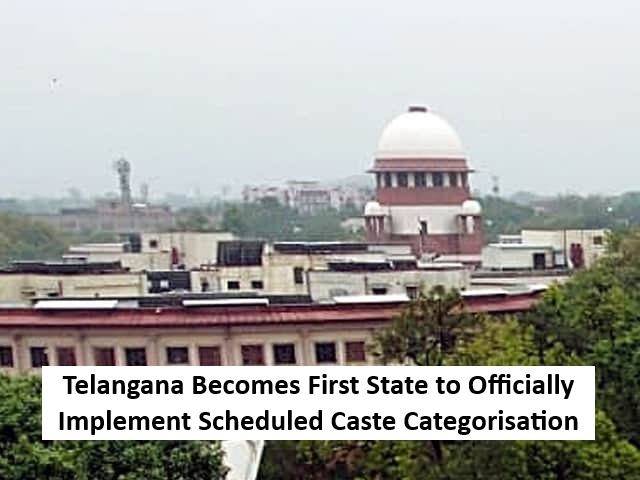
Telangana etched its name in history as the first Indian state to introduce Scheduled Caste (SC) categorization in government jobs and education on April 14. The government order (GO) issued on the birth anniversary of Dr. BR Ambedkar sub-divides the 59 SC communities into 3 distinct groups applying a system of 15% total reservation.
Revised Allocation of SCs
This has come as a decision from the commission under the retired High Court Judge Justice Shameem Akther. The 59 SC communities are now grouped as follows:
Group I: The 15 Academically and Socially backward SC communities get 1% reservation
Group II: 18 Moderately advantaged SC communities Get 9%
Group III: 26 Advanced SC Communities Get 5%
Action Starts Now
While making the announcement, Irrigation Minister N Uttam Kumar Reddy said these changes come into effect immediately. The GO was given in its first official format to Chief Minister A Revanth Reddy on Monday morning. All the forthcoming government job vacancies as well as student enrollment exercises will be done in light of this new system.
A First in India
Reddy pointed out that Telangana has become the first State in India to put into practice SC categorization after the Supreme Court order. He lambasted other states for sitting idle, passing only resolutions without making any real changes.
Data-Driven and Inclusive Process
Reddy and his cabinet subcommittee set up participants from all relevant stakeholders and formulated the SC categorization framework before arriving for the final verification. In February, the legislature sanctioned the Scheduled Castes (Rationalisation of Reservation) Bill, 2025.
Future Scope Linked to Census
The Minister has also suggested that there might be room to increase the percentage of SC reservations allocated after the 2026 census if there is an increase in the SC population. This results in a positive acceptance and elasticity adequacy towards social injustice policy.
Read More: Vaishno Devi Yatra Gets New Timing Rules: Start Within 12 And Return Within 24 Hours

 Share
Share



